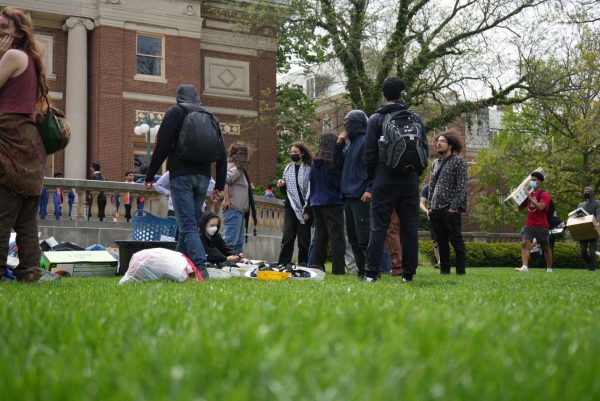The next University president needs to be able to creatively tackle budgetary limitations
June 30, 2014
A good leader is multifaceted and inventive, understanding that true strength comes from those around him or her.
While the University of Illinois searches the nation for a new president, it remains more important than ever to consider the qualities best suited for such a position.
Without constituency, a presidency is nothing, which is why the University of Illinois’ next president should turn a strong eye toward aiding and fortifying his or her constituency — faculty and staff.
To remain a preeminent public research university, the University must be able to attract and retain outstanding faculty and staff. Without a competitive salary and benefits package, this ability is at risk.
The salaries of full-time tenure track faculty on the Urbana campus are on average 2.8 percent below those of faculty in self-identified peer departments at other institutions, according to the final report from the ad hoc compensation review committee, charged in January to review the campus’ compensation packages. Similarly, average salaries in some units are more than 10 percent below average salaries of their peers.
Get The Daily Illini in your inbox!
The committee recommended that the provost continue to implement an aggressive salary program to eliminate the 2.8 percent gap, focusing on those units with the most significant salary gap. This would require a salary pool over and above annual salary increases by peer institutions. Offering an inferior compensation package, it is unlikely that the University of Illinois would be able to secure the best faculty while competing against its peer institutions.
Following the implementation of Senate Bill 1’s pension reform, the University of Illinois will lag behind all other Big Ten institutions — even if bill implementation is delayed or overturned. The compensation review report reads that contributions to the retirement plans of participants of the Tier II system and self-managed plans will continue to lag due to the underfunded nature of the State Universities Retirement System.
The University of Illinois sees a contribution grand total lower than 15.6 percent for all three of its pension plans, while the average Big Ten total is reported to be 26.39 percent, according to a 2012 study by Buck Consultants.
At this point in time, the University system can no longer rely entirely on SURS. The ad hoc committee recommends that the University system should continue to aggressively pursue the creation of a supplemental retirement plan. On April 14, members of the Urbana-Champaign Senate passed a resolution recommending the Board of Trustees pursue just that.
The University of Illinois’ next president should have creative vision to work around these financial obstacles, not to mention the ideas and experience to work around the state’s budgetary limitations. Urbana-Champaign is no stranger to economic development — one needs to look no further than the Research Park or the proposed College of Medicine. Economic development, in tandem with practices the University already has in place — donations, foundations, donors, you name it — will be key in years to come if the University hopes to keep stride with its peer institutions and remain a preeminent public research institution.
Sustainability will be a recurring theme in the future while the University of Illinois makes its own way despite state budgetary limitations.






